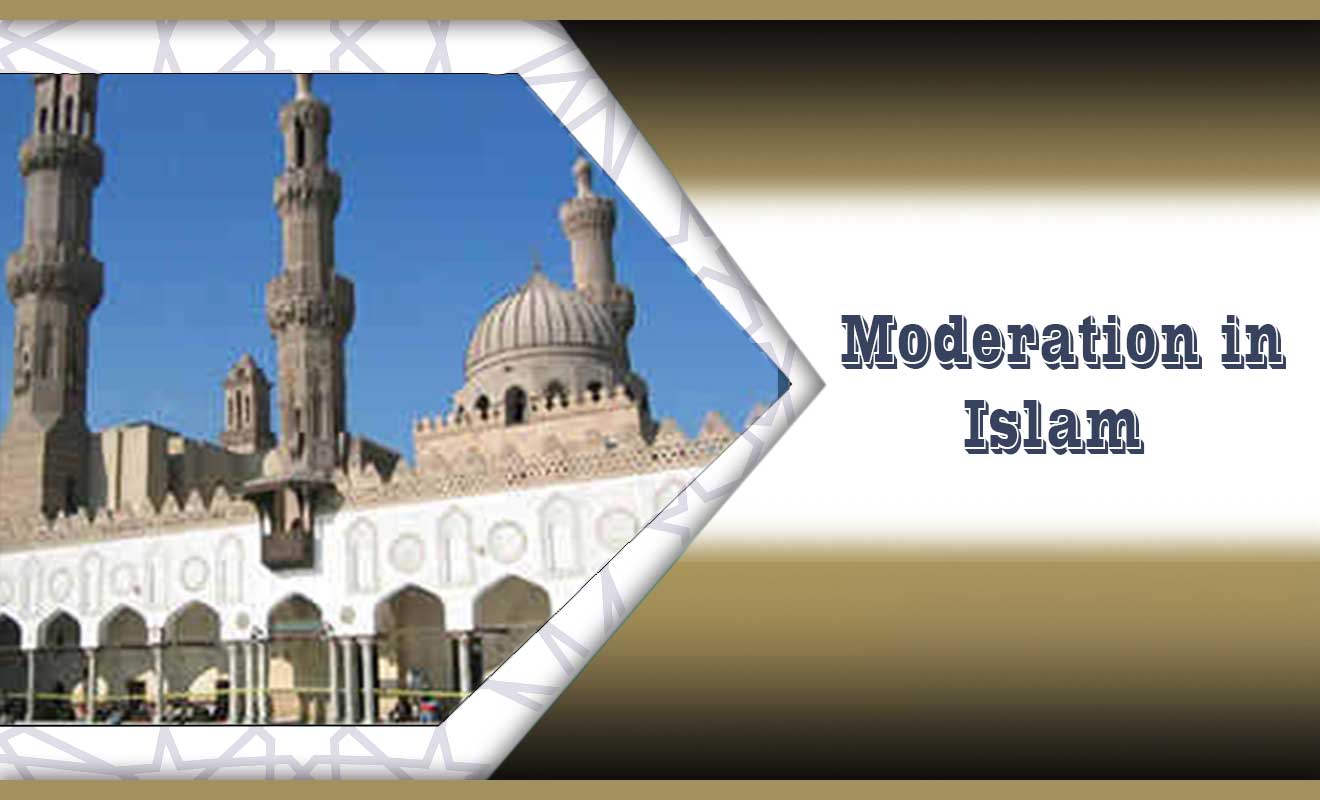
Examining moderation and its place in Islam
Ulama Institute #1
Looking to learn Arabic or memorize the Quran?
Check our Trusted Teachers

By definition, moderation involves the ability to observe restraint and the avoidance of extremes or excesses. Allah revealed the religion of Islam to present mankind with a moderate religion that would produce a nation of temperate believers. Allah ﷻ says:
وَكَذَٰلِكَ جَعَلْنَـٰكُمْ أُمَّةًۭ وَسَطًۭا لِّتَكُونُوا۟ شُهَدَآءَ عَلَى ٱلنَّاسِ وَيَكُونَ ٱلرَّسُولُ عَلَيْكُمْ شَهِيدًۭا ۗ( سورة البقرة : ١٤٣)
“And thus we have made you a moderate community that you will be witnesses over the people and the Messenger will be a witness over you. (Soorat al-Baqarah: 143)
So from its very inception, Islam began with a message of moderation that has been preserved forever in the Qur’aan. Muslims have been commanded to follow a path of moderation that has been defined for them by Allah ﷻ in a chapter of the Qur’aan that must be recited at least 17 times a day. In Soorat al-Faatihah, Muslims ask Allah for guidance to a straight path that is free of the excesses of those who incurred Allah’s ﷻ anger and the heedlessness of the misguided.
Moderation is a common theme in Islam that appears in many aspects of the religion. Islam represents the position of moderation that provides contrast to opposing stances of excessiveness and negligence. While people of other faiths may exaggerate or depreciate the status of certain prophets, Islam assumes a moderate position by promoting belief in all of the prophets that have been sent to mankind.
While people of different religious persuasions may commit excesses or completely abandon the law that was revealed to them, Islam offers balance by providing a law that creates stability without becoming restrictive and cultivates spiritual growth through the offering of acts of righteousness.
Islam has established the path of moderation that distinguishes between what should be considered inadequate and overzealous regarding acts of worship. The Prophet clearly defined the limits of religious asceticism when he was visited by three individuals who sought to get closer to Allah ﷻ by engaging in self-denial.
The Prophet then clarified how self-denial should not be interpreted to mean righteousness by saying: “By Allah, I am more submissive to Allah and I have more taqwaa conceming Him than you; yet I fast and I break my fast, I pray at night and I sleep, and I marry women. So whoever does not follow my example is not from me (i.e. not one of my followers).”
Islam has clearly defined the role of Muslims to include moderation in every affair. For this reason, Muslims will be witnesses over the people as Allah ﷻ says:
هُوَ ٱجْتَبَىٰكُمْ وَمَا جَعَلَ عَلَيْكُمْ فِى ٱلدِّينِ مِنْ حَرَجٍۢ ۚ مِّلَّةَ أَبِيكُمْ إِبْرَٰهِيمَ ۚ هُوَ سَمَّىٰكُمُ ٱلْمُسْلِمِينَ مِن قَبْلُ وَفِى هَـٰذَا لِيَكُونَ ٱلرَّسُولُ شَهِيدًا عَلَيْكُمْ وَتَكُونُوا۟ شُهَدَآءَ عَلَى ٱلنَّاسِ ۚ( سورةالحج :٧٨)
“He (Allah ﷻ) has chosen you and has not placed upon you in the religion any difficulty. [It is] the religion of your father, Abraham. Allah has named you “Muslims before [in previous scriptures] and in this [revelation]; that the Messenger may be a witness over you and that you may be witnesses over the people.” (Soorat al-Hag: 78)
But this distinction, like the excellence and the superiority of the Muslim nation, is strongly related to the behaviour of the Muslims. So whenever we find the Muslims commanding good, forbidding evil, believing in Allah ﷻ and offering acts of righteousness, it becomes easier for people to understand why the Muslims are a moderate nation that represents the best of what mankind can be.







